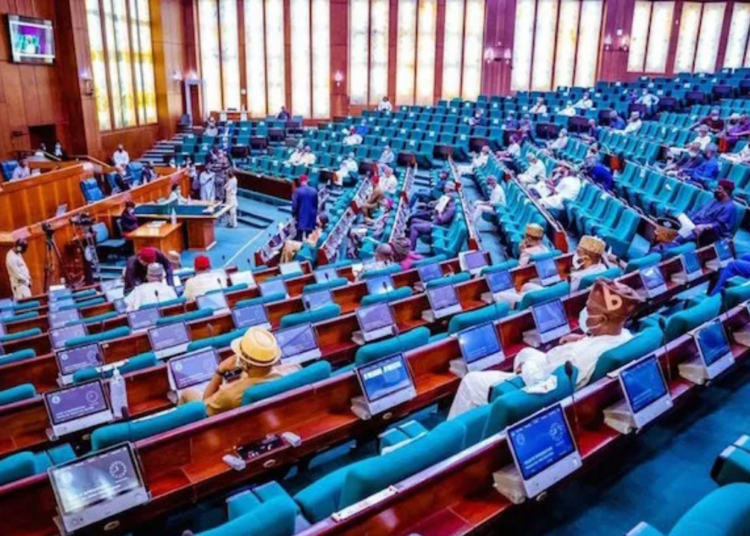The House of Representatives has resolved to conduct an investigative hearing on the non-compliance by banks and financial institutions with Central Bank of Nigeria (CBN) directives on the Net Open Position Limits.
The CBN in a circular to all the banks last week said the Net Open Position limit of the overall foreign currency assets and liabilities taking into cognisance both those on and off-balance sheet should not exceed 20 per cent short or 0 per cent long of shareholders’ funds unimpaired by losses using the Gross Aggregate Method.
Consequently, the House while adopting a motion moved by Hon. Babajimi Benson (APC, Lagos) at plenary on Wednesday, mandated the Committee on Legislative Compliance to ensure full implementation of the CBN’s directives.
Moving the motion, Benson expressed concern over the steady rise in the rate of the dollar in comparison to the naira. It rose to N1,520 to the dollar in the last week;
The lawmaker said the astronomical rise has been caused by diverse market forces and certain economic policies adopted by the government, including the liberalisation of the dollar.
He expressed worry that commercial banks and certain financial institutions in Nigeria usually hold back a large part of forex they obtain either through purchase, borrowing or allocation from the CBN rather than lending to their customers with a view to selling it when the exchange rate is high.
“Worried that this speculative activity by commercial banks and certain financial institutions has further exacerbated the harsh economic situation in the country and led to difficulty by legitimate businesses to obtain forex for their business transactions;
“Aware that the CBN has intervened by introducing new monetary policies to check the rise in the rate of dollar among which are the Net Open Position Limits and holding excess long foreign exchange;
“Also aware that commercial banks and certain financial institutions are reluctant to implement the monetary measures put in place by the apex bank to check this unwholesome practices by banks and other financial institutions in the country
“Concerned that unless drastic legislative measures are taken to enforce the implementation of these directives, the country will continue to experience dire economic hardship as a result of continuous rise in foreign exchange rates,” Benson added.





